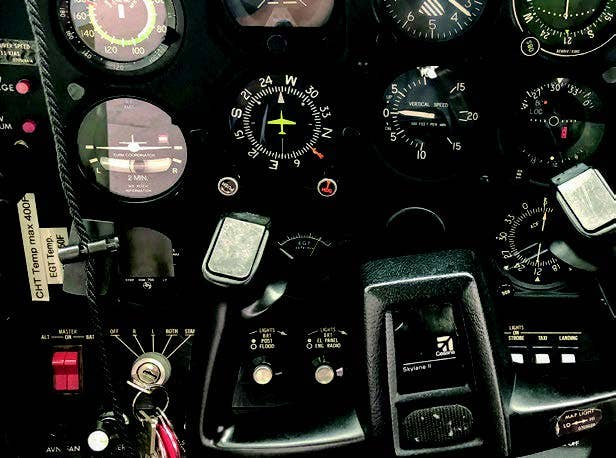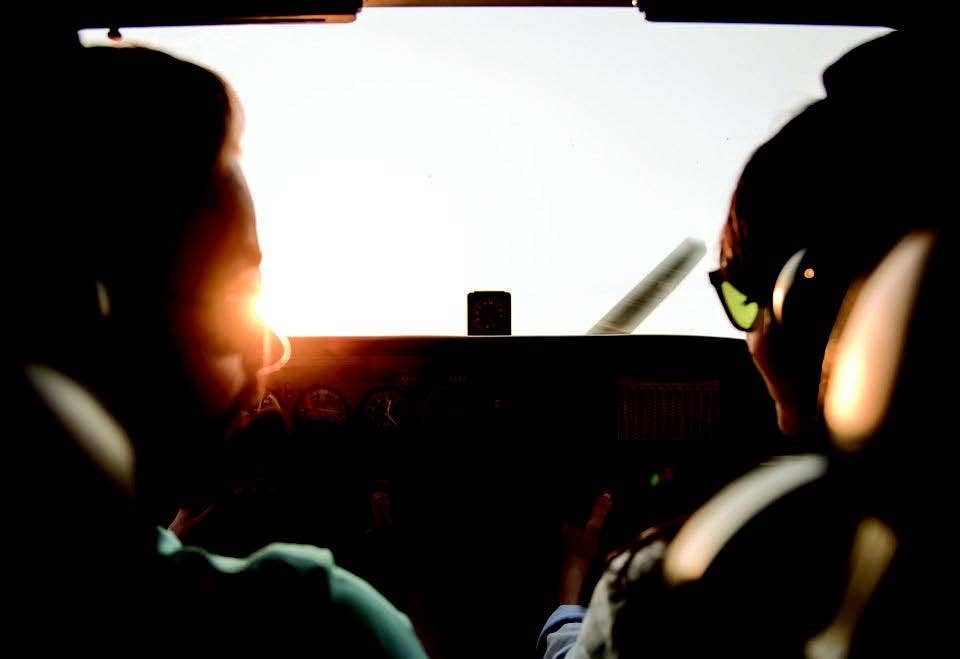
[Photo Credit: BigStock]
When it comes to mental health conditions like depression and anxiety, we frequently hear “the FAA won’t let me get help” or “if I try to get help, I’ll lose my medical.” Many times we see someone ask in an online discussion about how it will be handled by the FAA and the overwhelming response is “don’t bother, you’ll never get your medical.”
That defeatist attitude is common enough in general. For pilots with a history of mental conditions, it seems to be even more pervasive. Unfortunately, many pilots form their opinions based on information from those with no actual knowledge, training, or experience related to FAA medical policies.
We have already written about the importance of preparing for a FAA medical certification appointment like any other pass-fail examination. We have also highlighted how we can help pilots with significant medical conditions navigate the complexities of the FAA medical certification progress.
Mental health conditions deserve special consideration. Contrary to popular opinion, having a mental health diagnosis in your medical record is not automatically disqualifying for FAA medical qualification. In many cases even those with ongoing treatment for well controlled active conditions can still continue their flying careers. It often boils down to the right preparation for the exam.
Some Conditions Are Simple
The reality is that the FAA treats mental health conditions the same way as physical health conditions. They want to know about it and they want to know how well you are doing.
When you are filling out a new MedXPress you have to report all medications, medical conditions and any visits to medical professionals in the last three years.
What if you broke an ankle last week? The FAA cares a lot. But what if you broke an ankle three years ago and made a full recovery? They want to know, but if you are fully recovered, then that is what matters.
If you report your broken ankle on your MedXPress application, your AME can gather all the information they need to make a medical certification decision just by conducting a good physical exam. If you broke it last week and are still limping, using crutches, or recovering from surgery, do not schedule an AME appointment. Based on your medical condition, you should not be flying and you will not leave with a medical certificate. If you broke it three years ago and walk into your AME’s office with full pain-free strides, you will be just fine.
Some Conditions Are More Complex
If your AME needs more than their own physical exam to determine your eligibility for a medical certificate, you will need to do more preparation. Consider diabetes. Diabetes is a condition that usually does not cause any symptoms. If it is bad enough for your AME to identify during your physical exam, you almost certainly should not be flying. For pilots with diabetes, the only way to evaluate whether or not you are safe to fly is by reviewing recent lab results and reports from your treating physical.
Determining how diabetes may affect safety of flight is more difficult than it is for a broken ankle, but at least your doctors, your AME, and the FAA can still reference objective data to help make their decisions.
Mental Health Conditions Are Even More Challenging To Evaluate
Unlike a broken ankle, which an AME can evaluate by watching you walk in from the parking lot, or diabetes, which has objective lab results the FAA can use to determine your stability, the only way anyone can evaluate a mental health condition is by what you tell them.
During the 15-20 minutes they might spend with an AME, most pilots with mental health conditions will not look or act any differently than anyone else. It takes time, lengthy discussion, and careful consideration to understand how the condition may affect a patient’s day-to-day life, much less aviation safety. There is no way an AME can provide a responsible evaluation in the amount of time they spend with pilots and there is no way to measure depression or anxiety with a lab test.
Like with any other medical condition, the FAA will need to see that your condition has been properly evaluated by an appropriate specialist and that it has been treated to the point it will not affect safety of flight.
No one wants another Germanwings or China Eastern. That is why the bar is high. On the other hand, there is growing acceptance that pilots who are forthcoming about their condition and have the courage to seek treatment are likely safer than the ones suffering in silence.
Not Everything Is Reportable
If you see a personal trainer to help prevent injury or as a continuation of your rehab from an acute musculoskeletal injury, it does not need to go on your MedXPress application. The same goes if you see a massage therapist to help relieve muscle pain that does not limit your ability to safely operate an aircraft. If your symptoms are bad enough that you have been to a doctor for help, that should be reported.
By the same token, if you are going through a rough patch in life and turn to a non-medical counselor, pastor, or other trusted advisor for help, the FAA does not care. You do not need to report the life coach helping to improve your efficiency or the marriage and family therapist working to make your family relationships more supportive. But, if your symptoms become significant enough that you have taken medication or you are working with a psychologist or psychiatrist, that is something you should disclose.
Showing Stability Is What Matters
Reporting mental health concerns does not necessarily mean that your medical certification will be denied or even delayed. It does mean that you will need to show you are still safe to fly an airplane. Just like with a broken ankle, if your episode of depression was years ago and you have obviously been doing better since, reporting it will be unlikely to jeopardize your medical certificate. Just like with diabetes, if you have chronic depression that is well treated by an appropriate specialist with or without medication, chances are you can continue flying.
Do you think you are safe to fly? Would your co-pilot agree with you? If the answer is yes, the FAA will probably agree as well.
Make no mistake, there are some mental health conditions that will always be disqualifying. Bipolar disease, psychosis, and severe personality disorders are some examples. That is true for physical conditions too. Active seizure disorders and untreated coronary heart disease will get your medical certificate application rejected just as fast as schizophrenia.
For many pilots, including those who have suffered from depression, anxiety, and post traumatic stress disorder, FAA medical certification is becoming much more commonplace. The biggest difference between those conditions and the physical ailments we discussed above is that the documentation from those who treated you will have to tell the whole story. Making sure those records will meet the FAA’s standards and knowing which information to submit can be harder than you might guess. That is where we come in. If you’re safe to fly, we keep you in the air.

Subscribe to Our Newsletter
Get the latest FLYING stories delivered directly to your inbox






